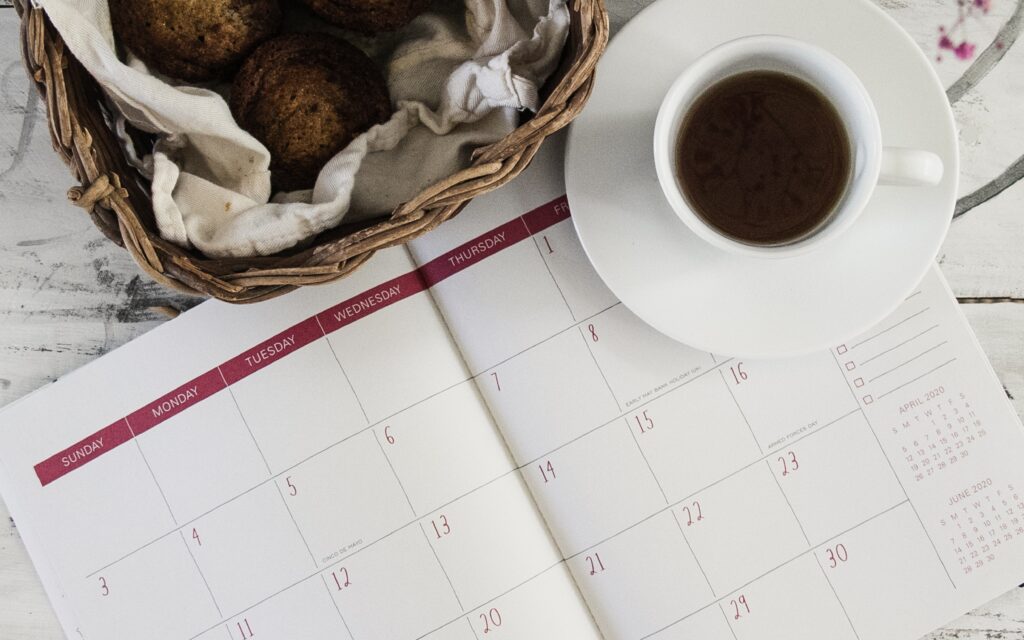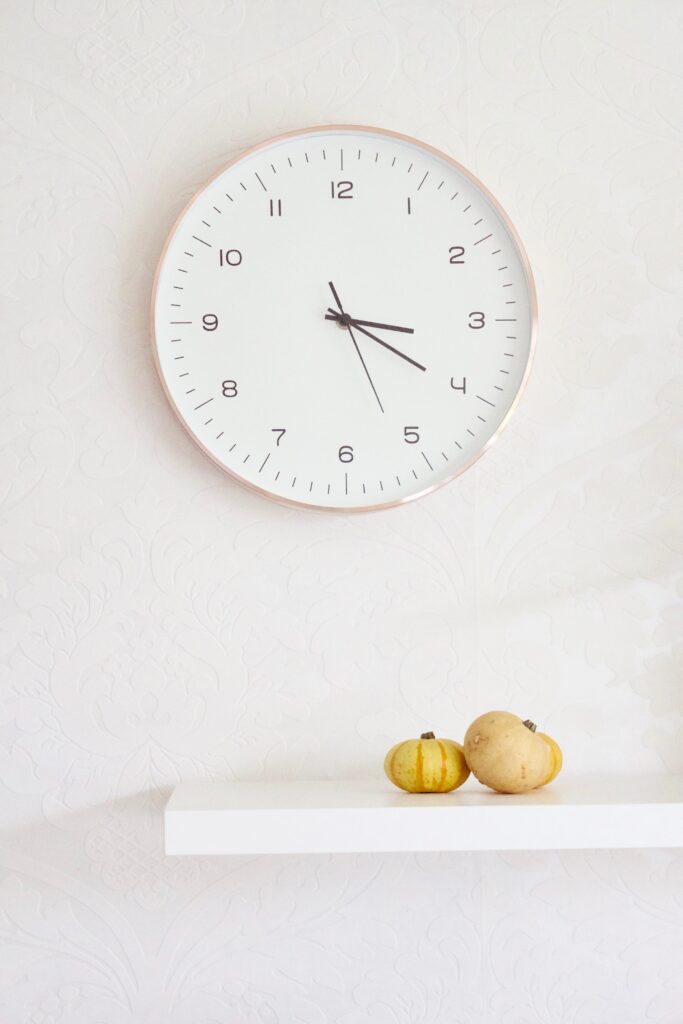Find peace, purpose, and living your priorities – and a lot of fun – by doing Sabbath God’s way.
In 10 Principles of Sunday Rest, you’ll learn:
- What Sabbath is (the heart of Sabbath)
- And what it isn’t (misconceptions)
- How to plan your ideal Sabbath
- Practical ideas to get cleaning, laundry and cooking done so you can take a day off
- How to make sure your Sabbath doesn’t get filled up again by setting a boundary
- And more
A note about the word “Sabbath”: In this guide, Sabbath and Sunday are used interchangeably. Choose whatever day you prefer to take off every week to observe as Sabbath. Pastors, for example, are busy on Sundays and often choose another day to keep Sabbath. Recommendation: Make your Sabbath-observance the same day each week.

Dear Friend,
This guide is an investment in your future. See, I know how observing Sabbath God’s way can change your and your family’s life. A few years ago, I started taking Sunday rest seriously. It wasn’t long before my whole family was relaxing every week. Sabbath-keeping breathed space and light into our lives.
We can’t imagine living any other way now. Our responsibilities didn’t change, but our hearts did. You know the tension, right? The stress of a schedule that never ends, house work, and shopping, and career, and child care, and keeping in touch with friends, and attending church, and volunteering. The cycle doesn’t seem to end.
You need a break. Good news: God wants you to have a break, too. In fact, He designed it into a covenant He made with His chosen people, and that break is still important today. He set that day apart, called it special, called it holy, and called it Sabbath.
Having a predictable day of rest is like the day before you go on vacation – you can get more done because you have a great day coming up, and you go through the week with hope because your day of freedom is coming.
Sabbath-keeping is the key to purpose, peace, and living your priorities. Taking one day off in seven isn’t just obedience to God (which is important), it’s good for your body, soul, and relationships. Why? Because it gives you physical time and spiritual space to reflect on your life (and readjust), nurture relationships with loved ones and with God, and rest your body.
Resting, really resting, one day in seven will change your life. 10 Principles of Sunday Rest will help you get started.
I’m glad you’re here. Welcome.
Blessings,
Janet Khokhar
Psst! You can download this article as a PDF and read at your leisure.
1. The Sabbath Serves You.
The governing principle of Sunday rest: The Sabbath serves you – it was designed by God as a gift for you. You don’t serve the “rules” of the Sabbath – this day serves you. Remember this primary principle when applying the other principles to follow.

“So, what am I supposed to do on Sunday? Am I allowed to do that?” Questions like these are common when someone is new to Sabbath-keeping. You’ve heard about Sabbath laws in the Old Testament, and how picky those Pharisees and Sadducees and scribes were about Jesus “working” on the Sabbath, even when that work was healing a lame man so he could walk and earn a living. With so many instructions and admonitions, it’s no wonder we believe there’s a right and wrong way to do Sabbath.
But Jesus dispelled that notion. The religious leaders reprimanded Jesus when his disciples picked heads of grain to eat on the Sabbath. His answer?
And He said to them, “The Sabbath was made for man, and not man for the Sabbath.”
Jesus, Mark 2:27 NKJV
Followers of Jesus, we are not crouched under a pyramid of Sabbath rules, last on the list of considerations.
We are at the top being supported by the solid foundation of God’s gift of Sabbath.
Now, are there things we do or fail to do that could make or break an effective Sabbath? Absolutely. Activities that keep us physically busy or mentally knotted up will defeat the gentle work of Sabbath-keeping.
An entire day of Christmas shopping at the mall is counterproductive. Hours writing a report for work or school is also not restful. But you’re an intelligent person. You know what helps your mind, body, and soul rest, and what nurtures your relationships.
You also know exactly what will sabotage your rest. You are in charge of what you will and won’t do on Sabbath. God isn’t scowling from heaven, dourly accusing you of being a lawbreaker.
Throw rules out of the window. Embrace guidance, like resting body, mind, and soul, meant for your good.
This day is a gift for you.
A gift.
A gift is never meant to be a burden to the recipient.
2. Jesus is Our Sabbath.
Jesus is our Sabbath; He is the rest our souls crave and the reason eternal rest and joy wait for us in heaven.

When we look at the components of Sabbath – rest, reflection, reconnection with God and with loved ones, getting the home ready, preparing food, etc. – we can fall into the understandable trap of believing that Sabbath is a physical act. A physical act for a spiritual purpose, but a physical act nonetheless.
But here’s the thing: God rested before sin, before the fall of man while humans lived without weeds and warts, before God assigned the first man his first day’s work. Sabbath must mean something more. Something beyond cessation of work.
Jesus often used parables, which were stories that conveyed a spiritual truth. The sabbath is much the same: a story of our lives that points to the higher story of eternity, salvation, and heaven.
Sabbath is obviously a time for our bodies to rest. Naps are a viable and encouraged option. But how does one rest the soul? Can a soul separated forever from Jesus ever be at rest?
One day in seven, we stop. We remember and we look ahead.
Jesus gave our souls rest from sin when He gave His life as payment for our sins, and rose again, forever proving that He is the Son of God and can raise us from the dead, too.
Jesus frees us from striving and self-sufficiency (in the “I can do it myself and I don’t need God” sense) with the freedom found in grace. We really are weaklings. He knows this, and He is strong for us. We rest from striving and struggling to be enough.
One day in seven, we lay aside effort and remember Jesus is enough.
Jesus completed His work on earth in the time He was given, then He returned to heaven and sat down at the right hand of the Father. Eventually, our work will cease. Our pain, anxiety, confusion, striving and stressing will fall away. Sabbath rest nudges us to look ahead.
One thing I love about Sabbath is that no matter how much needed to get done, no matter how busy, frazzled or even boring my week was, there is a guaranteed day of doing nothing once a week. Every week. And no matter how busy, frazzled, or even boring life gets…heaven awaits.
Sabbath is a tiny window. See the light casting through the panes of Sabbath every week and remember that our life has not an ending but a new beginning ahead.
We need to tuck this principle in our hearts. If Sabbath is just another entry on the calendar, it’ll feed our weary bodies but leave our souls hungry. We need both physical food and spiritual food.
Jesus offered the woman at the well living water for her thirsty soul even as she came to draw water for her thirsty lips. She could’ve ignored the Son of God and walked away with a sated thirst but empty of Jesus.
She could’ve found Jesus but needed to drink literal water later after she was parched from telling her whole town about Jesus. The unnamed woman needed spiritual water from Jesus, and she needed to lower that pot and draw up a drink like every other human being alive. This is where practical and spiritual marry.
This is the heart of Sabbath. Physical and spiritual, and God meets you in both on the Sabbath.
3. No Guilt Allowed
The average American’s difficulty with rest speaks to our culture’s moral elevation of busyness and productivity. Call it the Puritan work ethic or industrialization or the pioneer spirit, but Americans are among the busiest people on earth.

It’s too easy for us to hold up busyness as a virtue and rest as a little more than a concession to the weakness of our flesh.
If you are reading this as a member of another nation or as an immigrant, you may still need to question your society’s deep-seated beliefs about rest if you accuse yourself of being lazy, entitled when you plan a full day of rest. Few people seem immune to the work-as-a-virtue mentality.
If God can set aside an entire day to rest – guilt-free – then so can you.
And you know what? God wants you to do it. A day of rest isn’t something you kind of slide into your week, hoping God won’t notice that you aren’t being productive.
This was His idea. He planned your body and mind and soul and relationships to need this day off.
God created all things in six days, then rested on the seventh. This was day to sit back and take in all that He had made, to notice and attend to His fledgling universe and enjoy it. Six days of busy doings, purposeful and productive. But on the seventh day, He deliberately set aside physical work and switched over to spiritual work. One subjected itself to the authority of the other.
As humans, we are busy making life work, but rest reminds you and me that we’re souls and we have ministering work to do there.
Rest isn’t optional for our souls; and if it isn’t optional, then there’s no room for guilt.
God wants you to rest. No guilt. No rest for the purposes of getting ready to work again.
Rest has “work” of its own in tending to your soul.
One more time: No guilt.
4. Create a Vision Board.
Create a vision board for your Sunday/Sabbath. If you have a significant other, children, or others who live with you, then they should create a vision board, too.

If you’d rather journal about your ideal Sunday, then do that instead. A vision for your ideal Sunday is the first step of a practical blueprint that will help you plan your week so that your Sunday unfolds as an intentional, effective, consistent day of rest and reconnection.
Try using a Pinterest board to gather pictures, recipes, décor ideas, paint colors – anything that helps you depict the atmosphere, or mood, of your ideal Sunday. Include games, if that’s your thing, links to books or magazines you want to read, movies you want to watch, hot drinks or ice cold beverages to enjoy, candles or flip flops, depending on the season – anything that speaks rest, reconnection, and restful entertainment for you.
Share your vision boards with anyone who shares your home. Use your ideas to come up with a basic plan for your Sunday so that everyone has something to look forward to. Your vision board is a visual goal to help you focus your efforts and keep your motivation kindled as you make changes in your lifestyle to create your special Sunday.
Tip: Save something special just for Sunday so you, and everyone/anyone in your household, look forward to Sunday. For example, tuck away the new issue of a beloved magazine to savor on Sunday, or make your daughter’s favorite dessert the night before and serve it on Sunday. Everyone should have at least one activity that meets two requirements: entertaining (by entertaining, I mean mentally engaging and deeply interesting, not necessarily highly energetic) and restful.
5. Schedule Backward.
Plan for the day after and schedule backward. After you’ve developed your vision for Sunday, look at the next day.

This is the day when life returns to its usual routine and you clean up any mess from Sunday. If the thought of doing a pile of dishes on Monday means you’re slightly irked all Sunday, then plan backward.
Maybe Sunday isn’t the day to host a large, sit-down meal. Maybe, instead, you serve simple foods on paper plates. Yes, paper plates on a Sunday.
Use your ideal Monday to plan backward so that essentials are covered in the days leading up to Sunday.
This may mean, for example, reviewing your kids’ homework, packing lunches, and setting out school clothes on Saturday night. If lunch prepared on Saturday night wouldn’t keep, then make lunches Monday morning but have all the materials set aside. Or plan a simple, pre-packaged lunch for Monday, or give your kids lunch money to purchase a meal at school on Monday even if you send lunch for the rest of the school week.
Remember, there are precious few “should” for your Sunday, so do what works best for you and your schedule.
6. Check the Three Boxes. (What should you do on Sunday?)
Check the three boxes. Did you rest your body and mind today? Did you connect with your loved ones today? Did you connect with God today?

Rest is more than a nap. True rest encompasses body, mind, and soul.
When planning for Sunday, you only need to “accomplish” three things:
(1) a lazy day for your body. Put your feet up, grab that nap, take a bath.
(2) Uncomplicated, sweet time with the ones you love. Talk about the things that matter, watch a movie together, take a stroll (not a run), cuddle. Research shows that the single strongest factor in longevity and life satisfaction is warm, supportive relationships*. Nurture those in a restful way.
Uncomplicated, sweet time with the lover of your soul. God made the seventh day holy, and you rest from your life work on that day so you can attend to the soul work of just being with God.
(3) Reflect on your life. Get to know yourself. What are your deepest-held values? Does your life mirror what you believe? With the Holy Spirit’s guidance, take stock of the good and not-so-great and readjust, or simply reaffirm, where you’re headed
All three of these tasks are keys to a restorative Sunday that’s more than simple entertainment, but feeds your soul.
*Harvard Study of Adult Development
7. Plan for Time Suckers.
Make a plan for your time suckers. Those are usually food, laundry, house chores, and getting younger children ready for the day. These are the “whats” that we have to take care of before we get to the “why”. Examine your week, including Sunday, and note any choke points or tasks that often bleed into your Sunday. Remember, none of these things are exclusively your job unless you live alone. Recruit help.

Read on to learn how to deal with time suckers: Cleaning, laundry, food, children.
Time Sucker: Food.
Food: Decide what’s important to you.
If you want a full sit-down meal on Sunday, then you can do that but it will take planning. Double up on a few weekday dinners and serve a buffet of favorite leftovers.

Chop and store vegetables during the week as you prepare other meals so your Saturday evening cooking time for your Sunday meal goes much faster.
Tip: Choose foods that are easy to store and reheat or don’t need to be refrigerated. One pot meals, like soup and bread with canned peaches and a store-bought cake, will please just about everyone and only the soup needs to be stored in the pot you cooked it in and reheated on the stove.
Have theme Sundays (selecting easy-prep meals), such as Mexican Sunday (tacos), Spaghetti Sunday, Pizza (frozen or delivered) Sunday.
Keep snacks and drinks easily accessible. Yes, cereal is a legitimate dinner food.
Serve frozen dinners (yes, please cook them in the microwave) and let kids choose which ones you purchase so they look forward to eating them.
And, paper plates or your treasured china? Whatever makes your Sunday special.
Grocery shopping: Meal plans and lists are your friends. So is online shopping and delivery.
Time Sucker: Laundry.

Laundry: Reduce laundry-mountain overwhelm by starting a small load a few mornings a week. Fold it that evening or the next.
I checked online and it’s official: wet laundry can be left in the washer for eight to 12 hours without getting smelly. That’s time for most people to return from work or the day’s errands and switch clothes to the dryer.
When the dryer is done, pull out wrinkle-prone clothes immediately; everything else can wait until you and your little helpers (or your husband or teen), if you have them, are ready to fold. Perhaps in front of the tv?
Keep clothes hangers and a rod or moveable rack in your laundry room if you have space and use it for hang-up items. Consider replacing wrinkle-prone clothes with wrinkle-resistant fabric options when you shop for new pieces.
Evaluate, however gently, if you and yours have too many clothes. Consider cutting back and keeping favorite pieces to create capsule wardrobes. Buy socks all in one color so you don’t have to match pairs.
Can’t bring yourself to consign your toddler to losing her rainbow variety of princess socks? Give her (and everyone else in your household) a laundry bag designed for delicates and pop those socks into the bag for laundry time.
After age 12, most kids can do their own laundry. Consider helping with putting their dirty clothes in laundry baskets and folding clean clothes as training.
Time Sucker: Cleaning.
House chores: Your goal for Saturday evening is to have a home that is clean enough for you to relax in.

The key words here are “clean enough”. Your home doesn’t need to look magazine-worthy for it to serve you well on Sunday. Decide what level of clean feels good to you and make that your goal.
Look up speed cleaning methods used by professional cleaners to help you develop a quick and efficient routine.
Create a cleaning supplies caddy and keep it in one place. Don’t be afraid to buy cleaning tools or supplies that get the job done with greatest efficiency and effect. This is an outdoor example, but if you have three acres, then forget the leaf rake and get a leaf blower.
Keep kitchen counters and other surfaces clear; this makes for easy wiping down, and clear surfaces make any space look cleaner.
Trays can help random items look like one unit, reducing visual clutter.
And let me remind you that this isn’t your sole responsibility unless you live alone – and if you live alone and can afford a cleaning service, then go for it. Even younger children can learn to help with cleaning tasks and learn to enjoy them if you keep the task short and well defined (they know when they’re done), let them choose from a few options, make the environment fun (music), and enjoy a reward (optional, but motivating, such as extra screen time).
Children will get their housework attitude from you, or whatever adult directs the chores, so encourage them to think of home chores as loving on their family.
If house work is taking up more time than you think it should, then evaluate: Kids toys everywhere? Add a few large baskets. There’s no shame in a dump-and-hide routine if these toys are played with regularly and will soon be pulled out again.
Shoes, mail, piles of whatever? Invest in furniture with storage so you can tuck away visually cluttered items like mail and shoes.
Clutter, clutter everywhere? Go a (little) minimalist and decorate with larger, visually impactful items instead of many small tchotchkes. If you can’t part with your small items, then consider buying a small china cabinet or other display cabinet and keep those items on display inside – your eye will see one piece of furniture rather than dozens of individual scattered items. Secondhand is a great option; I keep my cabinet of curiosity collections in a diminutive china cabinet I scored at a thrift store for 50% off.
Time Sucker: Children.
Bribery is not beneath you.
Consider offering children a small allowance or special treat (in addition to whatever special activity or treat they planned for Sunday) if they get themselves ready for church, for example.

Help them learn the series of tasks needed to prepare for Sunday morning, such as choosing clothes, brushing hair and teeth, showing up for breakfast on time, and donning shoes (by the way, Velcro shoes or shoes with simple buckles or those easy-tie laces are your friends).
If your kids are very young and you have an older child, offer a reward of their choice for helping younger children so the work is shared and doesn’t fall entirely on you.
Because we’ve all seen those dads on the couch, all ready for church, while moms are stuffing little feet into shoes and sweating off her makeup.
So far, this list has focused on getting children ready for the day and, specifically, church because most America-based Christians observe Sabbath and attend church on Sunday. But getting children ready to leave home in a timely and presentable fashion isn’t the only issue when you’re trying to rest. Because how many of us would associate children with rest (at least, not rest for us)?
What do we do so our kids can also rest on Sunday without being too bored and driving us crazy? This is where you and I get to decide. It doesn’t matter if your mom or your sister are strictly against electronics on Sunday if you know that your kids will be calmer and less obnoxious if they have extra tablet time or a movie or two to watch.
My kids are fairly young: 6 and 10 as of February 2022. My older child has significant autism and ADHA. Yet, I rest on Sunday. My children have adjusted to our Sunday routine, and I allow them latitude in entertaining themselves. Tablets? Yup. Recently, I’ve started declaring Mondays as tablet-free days to balance electronics with real-life living.
Your kids know what’s fun for them and you get to decide whether that honors the heart of your Sabbath. If electronics are a no-no, then talk with your kids about what they enjoy. Maybe your child wants to try a new hobby or craft, or perhaps a trip to the library for books. How about an audio book? Those are surprisingly addictive (in a good way).
Remember the tip from the section on planning backwards? Everyone should have something special on Sabbath that they look forward to. Anticipation creates the right attitude for resting the right way.
One thing that I take advantage of is that the grandparents are always around and they spend some of the day hanging out with my boys. This allows me to do what I want to do without having my eyes always on my children. If this is an option for you, consider having like-Sabbath-minded family spend the day with you so you can share child-watching responsibilities. If you have older children, share this responsibility with them while also respecting your older child’s Sabbath rest, too.
Our kids are still a priority on Sunday, and we may not eliminate all child-related work, but we can plan for the things that keep up busy and running around. We’ll still have responsibilities in this area, but we can greatly reduce our workload with careful planning.
What I’ve found is that even energetic households adjust to a quieter rhythm. The new pace becomes an expectation, and kids’ brains and bodies begin to relax. Remember, children need Sabbath, too, and helping them to practice Sabbath early in life is a rich gift from you.
8. Set a Boundary.
Draw a boundary around your Sabbath and keep it.
Think about the non-negotiables in your life: Would you never miss opening Christmas gifts with your kids? Do you always take a day off from work on your birthday? Can your daughter count on you to be in the pick-up line at school every afternoon at 3:15?

These are commitments you keep, and you arrange your errands, your work, your meals, and your children’s sports schedules to keep those non-negotiable spaces open. Do the same with your Sunday.
If you don’t draw boundaries around your Sabbath, then anything becomes an excuse to squeeze just one more activity, one more errand, one more chore into your day.
That’s not to say that unusual events that can’t be easily rearranged or rescheduled are off the table – you’re an adult and you get to decide. If your family reunion happens every five years and it’s scheduled for a Sunday this year, then go and enjoy.
Advice: rest on the day before or after, but don’t skip your weekly rest. You’ll regret it.
Once you practice saying no to putting extraneous stuff on your Sunday calendar, those making requests of you will adjust their expectations. Even if you’re the one trying to fill up the schedule.
Keep your weekly commitment. This is a gift to your soul.
9. Expect the Feelings.
Don’t be surprised when strong emotions show up.
Here’s where the cautionary tale comes in. When you start having a real break, every single week, your heart and mind and soul are going to take a deep breath. You’re going to feel more space. Less crowding around the edges of your life.

And those spaces may fill up with strong feelings you didn’t expect. Melancholy? Don’t be surprised. When you’re busy all the time, you may not notice clues from your life.
That sacred pause on Sabbath lets your life catch up with you. Feelings held at bay break loose. The wisest thing you can do is feel those feelings, then follow them to the source.
Be a noticer of your life.
Smooshing those feelings down until you can get busy and back to work will backfire.
Eventually, you’ll be forced to notice. Health problems, anxiety, strained relationships – those symptoms will point to a problem, and the pain will drive you to seek a cure.
Why wait for trouble to grow to such a size? Use your Sabbath as a lens on your life. Notice what themes pop up.
I, for example, often think about moving to a new town in a new state. Where did that come from? Well, maybe I’m examining my life and finding that what I want, what I value most for myself and my children, can’t be accomplished where I live now. I may never move, but I am following questions into my own heart and paying attention.
Maybe answers will come.
Maybe questions will lead to even better questions.
God will use the sacred space of Sabbath to call you, to heal you, to draw your attention to something He wants to fix. Sometimes this will feel magical. Sometimes it will feel melancholy.
Welcome what comes. It’s your teacher and your healer.
10. Create Yes/No Lists.
Create your Yes/No lists. I got this idea from Emily P. Freeman, author of The Next Right Thing and The Next Right Thing Guided Journal.

Use the Yes/No list on your Sabbath. In the beginning of Sabbath practice, you’ll add activities, hobbies, and practices to your day. Some of those activities will be restful and uplifting, and some practices may be draining and aggravating.
Your Yes/No list helps you keep track of what you liked and what didn’t serve you well on Sabbath so you can keep the good stuff and cut out those practices that didn’t work.
A Yes/No list is a simple tool to help you get to know yourself. Knowing yourself will help you shape your Sabbath with what creates space and light in your soul.
Draw a line down the center of a sheet of paper and write Yes in one column and No in the other.
In the Yes column, write down activities that you enjoy, give you energy, bring you peace, increase spiritual intimacy with God, or improve relationships without bringing exhaustion or overwhelm. Add to the list as new activities prove to be keepers. Activities on this list are your go-tos for your Sunday/Sabbath plans.
In the No column, list activities that drain your energy, just don’t need to be done on Sunday/Sabbath, make you tired, discourage you, distract you from spiritual intimacy with God, or pull you away from the people you want to spend time with. Add to this list as you pay attention to your rest days and how these activities make you feel. Take a cue from the No list and say “no” more often to activities on this list.
Encourage everyone in your family to keep a Yes/No list. Before you know it, Sunday will be your favorite day of the week.
Whew! That was a lot of reading! Read at your leisure by downloading this article as a PDF.